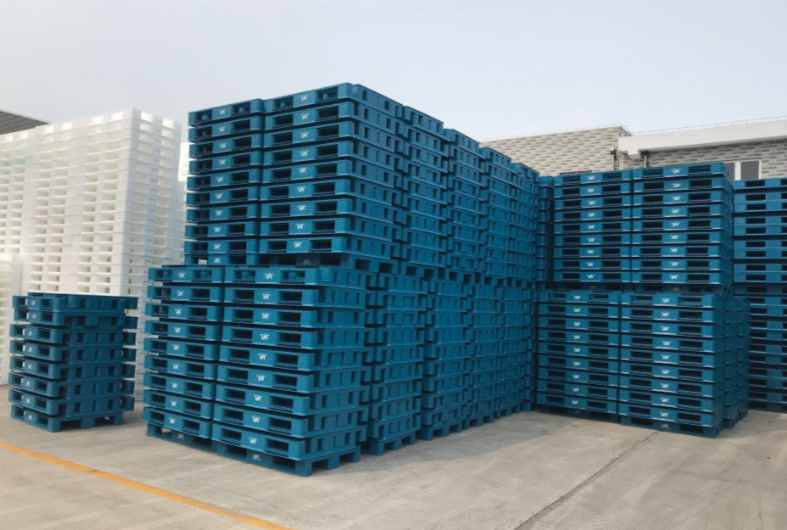Efficient material handling is the backbone of industries such as manufacturing, logistics, and warehousing. Among the tools enabling smooth operations, plastic pallets have emerged as a preferred choice. Designed to meet industry standards, plastic pallets for sale, hygienic, and cost-effective solution for transporting and storing goods.
If you’re exploring plastic pallets for sale, understanding their benefits and adherence to industry standards can help you make an informed decision.
Why Plastic Pallets Are the Standard for Material Handling
Plastic pallets are not just an alternative to traditional wooden pallets—they surpass them in many ways. Below are key benefits of plastic pallets and why industries worldwide are shifting their focus toward them.
1. Durable and Long-Lasting
Unlike wooden pallets that can crack, splinter, or warp over time, plastic pallets are built to last. Crafted from high-quality materials, they resist common wear and tear, including moisture, rot, and physical damage. This makes them highly reliable, even in environments that demand heavy-duty material handling.
With an extended lifespan, plastic pallets reduce the need for frequent replacement, saving businesses significant costs over time while decreasing material waste.
2. Hygienic and Easy to Clean
Plastic pallets are easier to clean than those made from porous materials like wood. Their non-porous surface resists contamination from liquids, dust, and bacteria. This makes them especially suitable for industries where hygiene is critical, such as food, pharmaceuticals, and chemicals.
Additionally, these pallets comply with strict sanitation guidelines, ensuring a safe and contamination-free material handling process. They also meet international health standards for export, making them the go-to choice for global shipping.
3. Lightweight Yet Robust
One of the standout benefits of plastic pallets is their lightweight structure, which reduces shipping costs and makes handling more efficient. Despite their lighter weight, these pallets are engineered to bear heavy loads evenly. This combination of strength and efficiency significantly enhances productivity across industries.
4. Environmentally Friendly
The sustainability of plastic pallets remains a valuable advantage. Many are fabricated using recycled materials and can themselves be recycled at the end of their life cycle. This promotes a circular economy, helping industries reduce their environmental impact while also aligning with corporate sustainability goals.
Additionally, their longer lifespan compared to wooden pallets minimizes resource consumption, further solidifying their reputation as an eco-friendly alternative.
5. Safer for Employees
Safety is a top concern in material handling, and plastic pallets play a crucial role here. With smooth edges and no protruding nails or splinters, they significantly reduce the risk of workplace injuries. Their ergonomic design also makes them easier to handle, lowering strain and fatigue for employees.
6. Standardized for Modern Operations
Plastic pallets are designed to meet stringent international industry standards. From ISO (International Organization for Standardization) guidelines to FDA regulations for food safety, they comply with modern safety and efficiency benchmarks. Their compatibility with automation systems like conveyor belts and forklifts ensures seamless integration into advanced industrial setups.
7. Cost-Effective in the Long Run
While the upfront cost of a plastic pallet might be higher than a wooden one, the long-term financial benefits are worth the investment. Their durability, low-maintenance requirements, and reusability lead to reduced replacement and repair costs, making them a cost-effective option over time.





